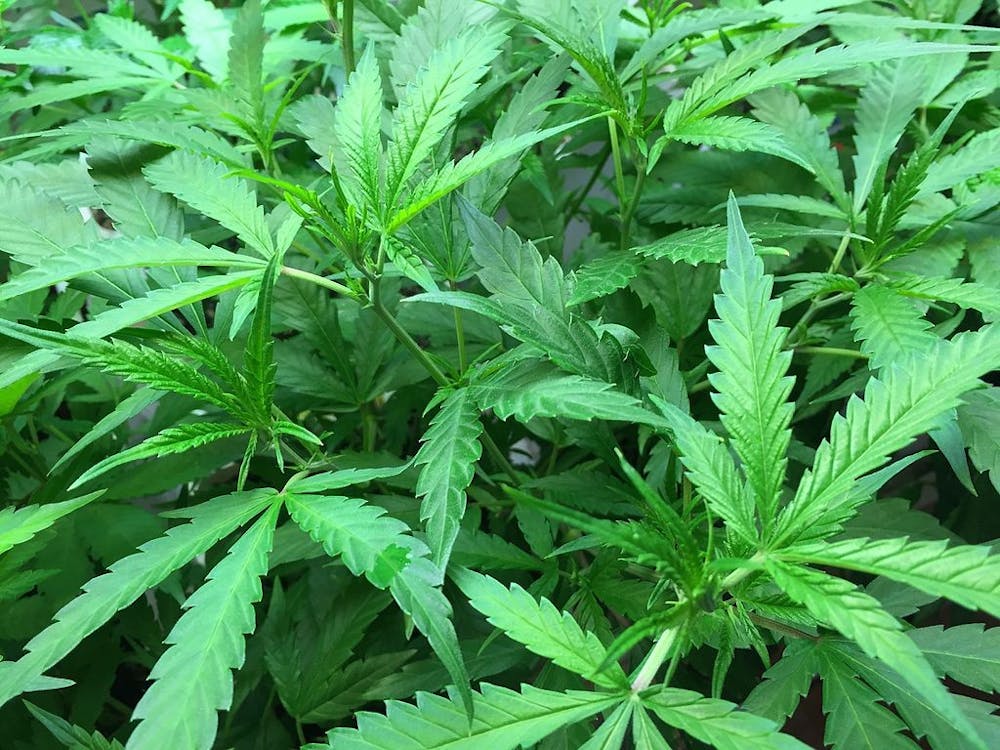As of Feb. 22, marijuana use is officially legal in New Jersey, with the state becoming the 13th to legalize the substance. After garnering a 67-percent approval from the public in early November, marijuana legalization took time to be finalized.
However, students still won’t be able to use the substance legally on campus. According to Section 47 of the bill, using marijuana will remain prohibited in the buildings and on the grounds of “any public or private institution of higher education or related entity.”
Deputy University Spokesperson Michael Hotchkiss told The Daily Princetonian in November that the University expected the law would prohibit the consumption of marijuana on University property, adding that “the University is still required to comply with federal law, under which marijuana is illegal and not permitted on University property or as part of any of the University’s activities.”
“We are analyzing these new laws and their impact at the University,” Hotchkiss told the ‘Prince’ following legalization.
Gov. Phil Murphy originally campaigned and came into office with the intent of legalizing marijuana. Though the process was not as quick as expected, he succeeded by signing three bills that will help start the industry and change the legal implications of marijuana use.
Lawmakers had to work out the details for tax revenue and the penalties for those under the age of 21. One of the three bills eliminated criminal penalties and replaced them with warnings for underage use of both alcohol and marijuana.
“Towns will no longer have the authority to enact ordinances with civil penalties or fines concerning underage possession or consumption violations on private property, among other measures,” NBC News reported.
The town of Princeton has already begun work on a Cannabis Task Force, proposed by Councilwoman Eve Niedergang. The task force will focus on three coverage areas: whether the town should permit the creation of a marijuana dispensary, how to best educate the community about marijuana policy change, and how to equitably enforce laws related to marijuana.
“I think that it is crucial for Princeton to hit the ground running because there is a very short (6 month) countdown clock for municipalities to decide if they want to have any segment of the cannabis industry in their jurisdiction,” Niedergang wrote in an email to the ‘Prince.’
“As I understand the legislation today, it is an opt out process; if Princeton takes no action, any of the six segments of the industry (cultivation, manufacturing, wholesaling, distribution, retail and delivery) would be able to operate in town, and Princeton would not be able to restrict that again for five years,” she continued.
“It is incumbent on us to examine, expeditiously but thoroughly, the pros and the cons of having any cannabis related operations in the municipality,” Niedergang added. “These decisions cannot be divorced from a social justice perspective; black and brown communities have suffered overwhelmingly from the war on drugs. If there is profit to now be made from cannabis, whether private profit or public, addressing racial and social equity must play a role in our decisions.”

Niedergang added that she hopes University students will get involved with the Task Force.
“An open, fact-driven process in which all stakeholders are heard is the preferred way to achieve the best results for our community,” she wrote. “We've invited a representative from the University's chapter of Students for Sensible Drug Policy to join the task force, so there will [be] student representation on the Task Force.”
Like Niedergang, many view the legalization of marijuana as a movement towards helping those who are disproportionately affected by penalties for marijuana usage.
Murphy spoke on this issue saying, “New Jersey's broken, indefensible marijuana laws — which permanently stained the records of many residents and short-circuited their futures, disproportionately hurt communities of color and failed the meaning of justice at every level, social or otherwise — are no more.”
Visiting Princeton lecturer and former NJ ACLU director, Udi Ofer, played a large role in launching the NJ marijuana legalization effort six years ago and spoke about the impact of legalization on civil rights.
“The passage of marijuana legalization in New Jersey is an important step forward for civil rights in the state,” Ofer wrote in an email to the ‘Prince.’ “As recently as 2017, New Jersey held the distinction of making more arrests for marijuana than any other state in the nation, with 34,500 arrests that year. And New Jersey has consistently had some of the worst racial disparities in the nation when it comes to marijuana arrests.”
Ofer said his hope is for both African Americans and those who have a criminal record to have equal access to legal marijuana sales.








